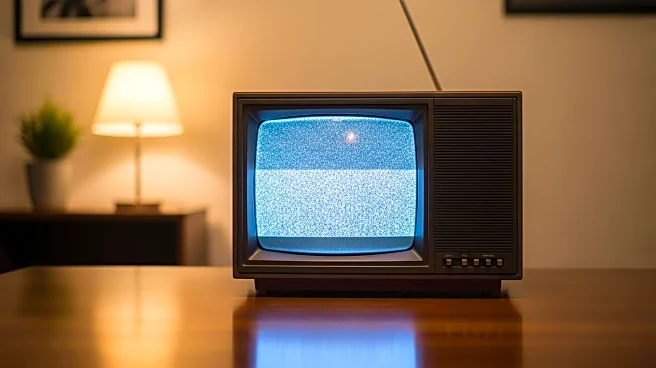What's Happening?
President Trump has expressed concerns about the accuracy of television reports regarding protests in Portland, Oregon. During discussions about deploying National Guard troops, Trump questioned whether the television portrayal of fires and attacks was reflective of reality. He noted that the repeated images of protests seemed to loop, raising doubts about their authenticity. This skepticism highlights the potential disconnect between media representations and actual events, as Trump relies heavily on television for information.
Why It's Important?
The president's reliance on television as a primary source of information underscores the influence media has on political decision-making. If television reports are inaccurate, it could lead to misguided policies and actions, such as the deployment of troops based on exaggerated threats. This situation raises concerns about media literacy and the need for critical evaluation of news sources, especially for those in positions of power. The broader implication is the potential for media to shape public perception and policy, impacting societal trust in both media and government.
What's Next?
The ongoing debate about media accuracy may prompt further scrutiny of news outlets and their reporting standards. Stakeholders, including media organizations and political leaders, might engage in discussions to address these concerns and improve transparency. Additionally, there could be increased calls for media literacy education to help the public and leaders critically assess the information they consume.









